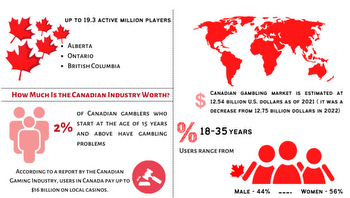Crypto Gambling Regulations Around the World

Crypto gambling has rapidly become an increasingly popular form of entertainment. Millions of people across the globe enjoy using digital currencies such as Bitcoin, Ethereum and Litecoin when placing bets. However, while there is this trend toward cryptocurrency usage, many governments are now turning their eyes towards regulating this activity. This article will take a look at the global regulations that exist and how they are impacting players.
Why Governments Are Regulating Crypto Gambling?
Crypto casino gambling remains a controversial activity with many governments placing tight restrictions on the industry. With crypto betting, the issue is further complicated by its anonymous and highly decentralized nature.
As a result, many governments feel the need to protect their citizens and maintain order in society by exerting greater control over crypto gambling. This is largely done through laws or regulations which dictate where players can bet, who they are allowed to endow funds to, what specific equity forms/tokens may be used for deposits with an operator etc.
Sometimes, these regulations have been applied harshly, leading to outright bans in certain countries. In others, the attitude towards crypto gambling has been laxer with regulations tending to focus more on consumer protection and the transparency of bet outcomes. Responsible Gambling Policies are often put in place to encourage gamers and ensure that the entertainment is enjoyed responsibly.
Global Regulations on Gambling
The regulations for crypto gambling differ greatly around the world with each government having their own approach. So, it’s important for players to be aware of the laws/restrictions that may apply in their region. Below, we will take a look at some of the major regulations by country.
- The USA. The US is split into multiple jurisdictions, each with its own laws regarding crypto gambling. Some states allow wagers to be placed on provably fair games while others have moved toward banning all types of online betting and cryptocurrencies altogether. New Jersey, Nevada and Delaware all have laws in place that enable betting activity within their respective borders.
- The UK. In the UK, it’s illegal to operate an unlicensed betting site and all transactions must go through a licensed payment provider. The UK Gambling Commission also sets stringent rules with regard to fair gaming and routinely audits operators for compliance. The Commission also offers guidance on responsible gambling and enforces a self-exclusion option for those who may be at risk of overindulgence.
- Canada. Canada has taken a more relaxed approach to gamble with online casinos not needing a license and the federal government leaving regulation up to each individual province. Players in Canada have access to both licensed operators as well as unregulated ones, but it’s important for them always be aware of any restrictions that might exist depending on their specific location.
- Australia & New Zealand. These two countries have taken a stricter stance on crypto gambling, with both requiring operators to obtain local licenses. All games and payouts must also abide by the respective country’s laws in order for them to be approved/legalized.
- Japan. Japan has taken a hard line when it comes to gambling activities with crypto, specifically. In Japan, any form of crypto gambling is banned for both operators and players. The government has been clear on its stance, declaring any form of online gambling illegal no matter where the activity is being conducted.
As you can see, the regulations concerning crypto gambling vary greatly around the world. In some places, it is freely and openly allowed while in others governments are utilizing harsh restrictions to curb its spread. But we expect that over the coming years, more and more governments will continue to look into regulating this form of entertainment as it becomes increasingly popular.
Areas of Regulation That Impact Players
When it comes to regulations that intersect with crypto gambling, there are several broad areas of law which pertain specifically to online players. Of course, Responsible Gambling is the most crucial area and one that needs to be monitored closely. Governments strive for a safe Gambling industry, and this includes measures like player self-exclusion options as well as limits on deposits/withdraws plus age restrictions.
Another important regulation concerns encryption protocols which all sites need in order to maintain secure platform access to users’ digital wallets (both players & operators). This ensures that funds are always stored safely away from potential theft or malicious activity by would-be hackers. Lastly, KYC requirements also matter since governments want transparency into who may engage with betting activities online so they can properly track conduct when necessary.
Final Thoughts
Crypto gambling is quickly becoming an accepted form of entertainment around the world and as such, governments are taking action to properly regulate this industry. Although there may be differing laws/restrictions from jurisdiction to jurisdiction, ultimately the goal is to create a safe and fair environment for all players to take part.
CaptainAltcoin's writers and guest post authors may or may not have a vested interest in any of the mentioned projects and businesses. None of the content on CaptainAltcoin is investment advice nor is it a replacement for advice from a certified financial planner. The views expressed in this article are those of the author and do not necessarily reflect the official policy or position of CaptainAltcoin.com




































